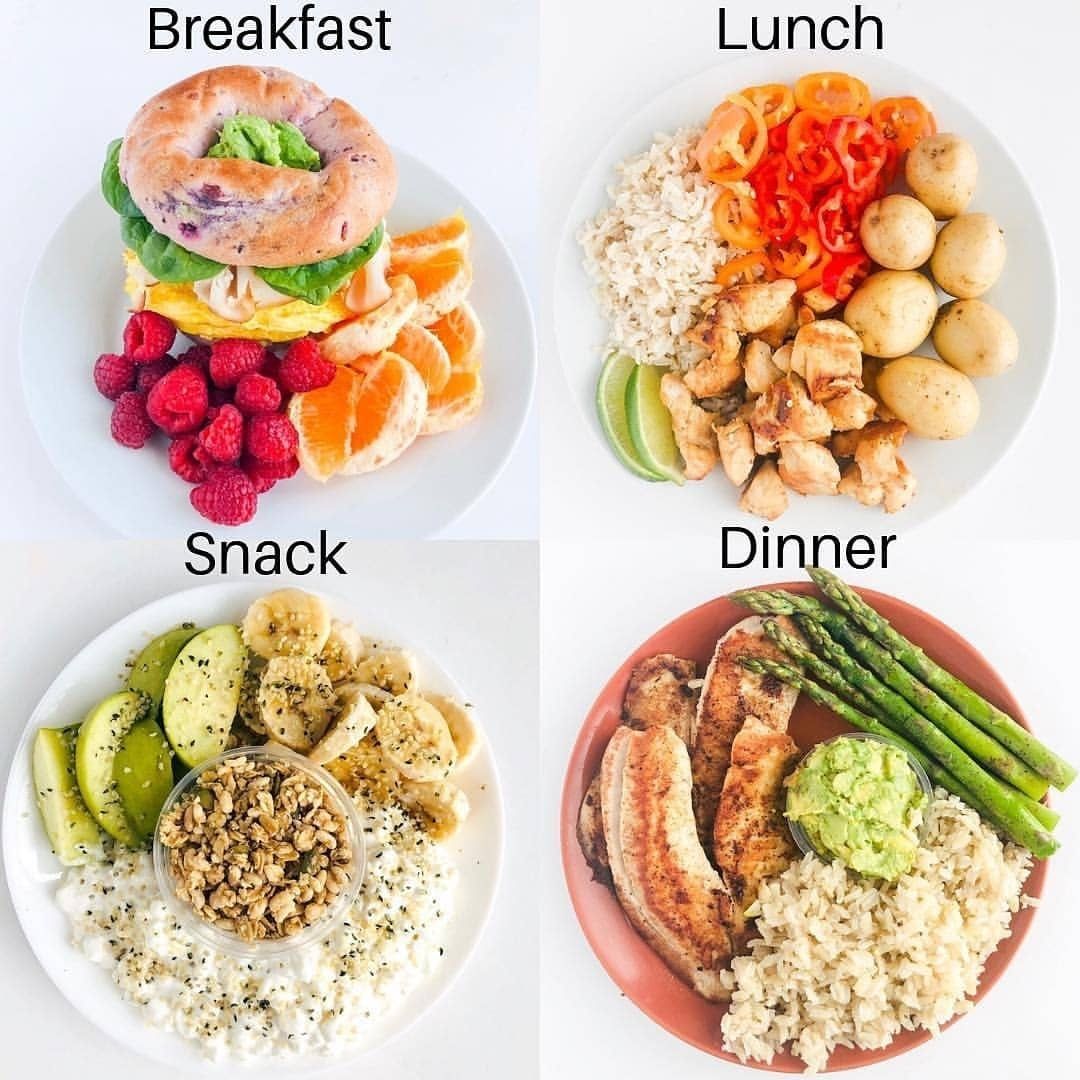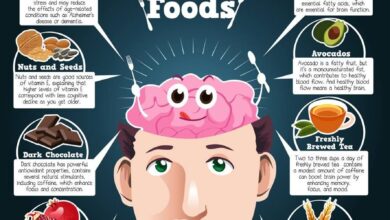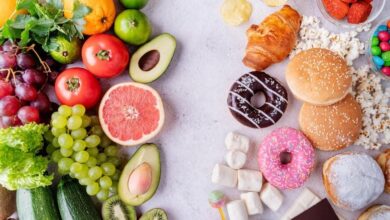
The Ideal Rest Day Eating Plan: Fueling Your Recovery
The ideal rest day eating plan takes center stage, a crucial element in your fitness journey. Think of it as a strategic refueling stop, allowing your body to repair and rebuild after intense workouts. It’s not just about what you eat, but how those foods contribute to muscle recovery, energy replenishment, and overall health.
This guide will delve into the science behind rest day nutrition, offering practical tips, sample meal plans, and strategies to optimize your recovery. We’ll explore the role of macronutrients, hydration, and even the potential benefits of specific supplements. By understanding the importance of rest day nutrition, you can maximize your training progress and achieve your fitness goals faster.
Individualized Rest Day Plans

Your rest day is just as important as your training days when it comes to achieving your fitness goals. While you’re not hitting the gym, your body is still working hard to recover and rebuild. This means your rest day nutrition plays a crucial role in supporting your recovery and optimizing your performance for the next workout.The key to successful rest day nutrition is personalization.
Everyone’s body is different, and your rest day needs will vary depending on your activity level, training intensity, and dietary preferences.
Factors Influencing Rest Day Nutrition
Rest day nutrition is a personalized approach, and several factors influence how you should eat on your off days. These include:
- Activity Level:If you’re an endurance athlete, your body needs more carbohydrates to replenish glycogen stores. On the other hand, if you’re a strength athlete, your body needs more protein to repair and rebuild muscle tissue.
- Training Intensity:The harder you train, the more your body needs to recover. This means consuming more calories and nutrients on rest days following intense workouts.
- Dietary Preferences:Your individual dietary needs and preferences play a significant role in shaping your rest day meal plan. Some people prefer to eat a high-protein diet, while others prefer a balanced diet with more carbohydrates.
Adjusting Rest Day Meal Plans
Once you understand the factors influencing your rest day nutrition, you can start adjusting your meal plan to meet your specific needs.
- Increase Carbohydrate Intake:If you’re an endurance athlete, you can increase your carbohydrate intake on rest days to replenish glycogen stores. This can be done by including more complex carbohydrates such as brown rice, quinoa, and sweet potatoes in your diet.
- Increase Protein Intake:If you’re a strength athlete, you can increase your protein intake on rest days to help repair and rebuild muscle tissue. This can be done by including lean protein sources such as chicken breast, fish, and tofu in your diet.
- Focus on Nutrient-Rich Foods:Regardless of your activity level or training intensity, it’s essential to focus on nutrient-rich foods on your rest days. This includes fruits, vegetables, whole grains, and lean protein sources.
Example Rest Day Meal Plans
Here are some example rest day meal plans for different activity levels and training intensities:
Endurance Athlete Rest Day Meal Plan
Breakfast:Oatmeal with berries and nuts Lunch:Quinoa salad with grilled chicken and vegetables Dinner:Baked salmon with brown rice and steamed broccoli Snacks:Fruit, yogurt, trail mix
Strength Athlete Rest Day Meal Plan
Breakfast:Scrambled eggs with whole-wheat toast and avocado Lunch:Chicken breast with brown rice and steamed vegetables Dinner:Lentil soup with whole-wheat bread Snacks:Protein shake, Greek yogurt
Your rest day eating plan isn’t just about refueling your body, it’s also about optimizing your hormonal balance for peak performance. Understanding the connection between hormones and training performance can help you tailor your rest day meals to support muscle recovery, reduce inflammation, and promote overall well-being.
By focusing on nutrient-dense foods and strategic timing, you can ensure your body is primed for your next training session.
General Rest Day Meal Plan
Breakfast:Smoothie with fruit, yogurt, and protein powder Lunch:Salad with grilled chicken or fish and vegetables Dinner:Turkey chili with whole-wheat bread Snacks:Nuts, seeds, fruit
Remember, these are just examples. Your individual rest day meal plan should be tailored to your specific needs and goals. Consult with a registered dietitian or sports nutritionist for personalized guidance.
Common Rest Day Eating Mistakes
Rest days are crucial for muscle recovery and overall well-being. However, many people make common mistakes with their rest day nutrition, potentially hindering their progress and even promoting weight gain. Understanding these mistakes and implementing strategies to avoid them can significantly enhance your recovery and help you achieve your fitness goals.
A well-planned rest day eating plan is crucial for muscle recovery and overall well-being. While it’s tempting to indulge in unhealthy treats, remember that fueling your body with nutrient-rich foods is essential for optimal performance. Taking a break from intense workouts allows your body to repair and rebuild, and it’s a great opportunity to focus on things like stretching, foam rolling, and even a relaxing bath.
If you’re looking for some motivation to embrace those recovery days, check out this article on 5 great things about recovery days. Coming back to your rest day eating plan, remember to prioritize protein, complex carbs, and healthy fats to support your body’s recovery process.
Overeating
It’s tempting to indulge on rest days, thinking you’ve earned it after a tough workout. However, overeating, especially on calorie-dense foods, can lead to excess calorie intake, potentially hindering your recovery and promoting weight gain. Your body needs time to repair and rebuild muscle tissue, and overeating can put unnecessary stress on your digestive system.
A well-planned rest day eating plan should prioritize recovery and muscle repair. This means loading up on protein and complex carbohydrates to fuel the rebuilding process. But it’s also crucial to consider your overall fitness goals. If you’re aiming to boost your endurance, you might want to learn about what is VO2 max and how can you improve it as it directly impacts your body’s ability to utilize oxygen during exercise.
Once you understand the science behind VO2 max, you can adjust your rest day nutrition to support your training and recovery, ultimately leading to better performance.
Skipping Meals
While it might seem counterintuitive, skipping meals on rest days can also be detrimental. When you skip meals, your body enters a catabolic state, breaking down muscle tissue for energy. This can hinder your recovery and potentially lead to muscle loss.
Consuming Processed Foods
Rest days are an excellent opportunity to prioritize whole, nutrient-rich foods. Processed foods are often high in calories, unhealthy fats, and added sugars, which can contribute to inflammation, hinder recovery, and promote weight gain.
Ignoring Hydration
Hydration is essential for muscle recovery and overall health. It’s important to stay hydrated on rest days, as your body still needs fluids to repair and rebuild muscle tissue.
Not Getting Enough Protein
Protein is essential for muscle growth and repair. While your protein needs may be slightly lower on rest days, it’s crucial to consume enough to support muscle recovery. Aim for a protein intake of around 0.8 grams per kilogram of body weight, or 0.36 grams per pound.
Overindulging in Alcohol
Alcohol can hinder recovery and lead to dehydration. While an occasional drink on a rest day is fine, it’s best to limit alcohol consumption to avoid hindering your recovery.
Rest Day Nutrition for Different Goals: The Ideal Rest Day Eating Plan

Your rest days are just as important as your workout days when it comes to achieving your fitness goals. While you’re not hitting the gym, your body is still hard at work recovering and rebuilding. Proper nutrition plays a crucial role in optimizing this process and ensuring you’re maximizing your progress.Your rest day eating plan should be tailored to your specific fitness objectives, whether you’re aiming for weight loss, muscle gain, or endurance performance.
Rest Day Nutrition for Weight Loss, The ideal rest day eating plan
Rest days are particularly important for weight loss as they allow your body to recover from the calorie deficit you’ve been in during your workout days. You’ll need to consume enough calories to support your body’s recovery and prevent muscle loss, but not so much that you hinder your weight loss efforts.
Here are some key considerations for your rest day nutrition if you’re aiming to lose weight:
- Prioritize protein intake.Protein is essential for muscle repair and growth, which is vital for maintaining metabolism and burning calories. Aim for around 0.8 grams of protein per pound of body weight on your rest days. Examples of protein-rich foods include lean meats, fish, poultry, eggs, beans, lentils, tofu, and Greek yogurt.
- Control carbohydrate intake.While carbs provide energy, excessive intake can lead to fat storage. Focus on complex carbohydrates, such as whole grains, fruits, and vegetables, which provide sustained energy and fiber. Avoid refined carbohydrates, such as white bread, sugary drinks, and processed snacks.
- Hydrate adequately.Water is crucial for all bodily functions, including nutrient transport and waste removal. Staying hydrated on rest days can help prevent muscle soreness and fatigue, making you feel better overall.
- Choose healthy fats.Healthy fats, like those found in avocados, nuts, seeds, and olive oil, can help you feel satiated and support hormone production. However, moderation is key, as excessive fat intake can contribute to weight gain.
- Mindful snacking.If you’re feeling hungry between meals, choose healthy snacks that are low in calories and high in nutrients. Examples include fruits, vegetables, nuts, and yogurt.
Rest Day Nutrition for Muscle Gain
Rest days are crucial for muscle growth as they allow your muscles to repair and rebuild after strenuous workouts. To support this process, you need to provide your body with the necessary nutrients, particularly protein. Here’s what to focus on for muscle gain on rest days:
- Increase protein intake.Aim for 1.2-1.7 grams of protein per pound of body weight to support muscle growth and repair. This can be achieved through consuming protein-rich foods at every meal and snack.
- Maintain carbohydrate intake.Carbohydrates are essential for replenishing glycogen stores, which are depleted during workouts. Choose complex carbohydrates that provide sustained energy and fiber.
- Supplement with creatine.Creatine is a naturally occurring compound that can enhance muscle growth and strength. It’s a popular supplement among athletes and fitness enthusiasts.
- Optimize hydration.Staying hydrated is crucial for muscle recovery and overall health. Aim to drink plenty of water throughout the day.
- Consider a post-workout meal.Even on rest days, your body needs time to recover. A post-workout meal, even a light one, can help accelerate the recovery process.
Rest Day Nutrition for Endurance Performance
Rest days are essential for endurance athletes to allow their bodies to recover from the physical demands of training. Proper nutrition on rest days can help replenish glycogen stores, repair muscle tissue, and improve overall performance.Here’s how to adjust your diet for endurance performance on rest days:
- Prioritize carbohydrate intake.Carbohydrates are the primary energy source for endurance activities. Replenishing glycogen stores on rest days is crucial for optimal performance. Focus on complex carbohydrates, such as whole grains, fruits, and vegetables.
- Moderate protein intake.Protein is essential for muscle repair and growth, but it’s not as critical as carbohydrates for endurance athletes. Aim for around 0.8-1.2 grams of protein per pound of body weight.
- Hydrate effectively.Water is essential for maintaining hydration levels and preventing dehydration, which can hinder performance. Aim to drink plenty of water throughout the day.
- Include electrolytes.Electrolytes, such as sodium, potassium, and magnesium, are lost through sweat during endurance training. Replenishing these electrolytes on rest days can help prevent cramping and fatigue.
- Focus on recovery foods.Foods rich in antioxidants, such as berries, leafy greens, and cherries, can help reduce inflammation and promote recovery.
Outcome Summary

Mastering rest day nutrition is an essential part of any fitness journey. It’s not just about giving your body a break, but about providing it with the tools it needs to rebuild and recover. By following a strategic eating plan, you can ensure your muscles are adequately replenished, your energy levels are restored, and you’re ready to tackle your next workout with renewed vigor.
Remember, rest day nutrition isn’t about deprivation, but about fueling your body for optimal performance and long-term success.






